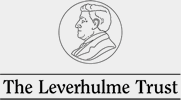The collections gathered within the Digital Miscellanies Index are primarily poetic collections: we have only included miscellanies which contain a majority of verse. But they are also a rich source of popular musical repertoire. Some collections supply notation alongside their lyrics, while others refer to widely known tunes: ‘Sung to the tune of Packington's Pound’, or ‘To the tune of Lilliburlero’. The following popular songs, played here by Giles Lewin and Vivien Ellis, offer a sample of eighteenth-century musical miscellaneity.
Ann thou were my ain Thing
Viven Ellis, voice, and Giles Lewin, fiddle (4 mins 53 secs)
Ann thou were my ain Thing was first widely circulated in print in William Thomson's Orpheus Caledonius (1725), one of the early large-scale printed collections of Scottish songs in print, offering 50 songs arranged with un-figured bass. As the title of the collection suggests, these songs capitalised on the fashion for popular Scottish music, repackaging it for a polite readership. The song was later set by Haydn.
Cold and Raw
Viven Ellis, voice, and Giles Lewin, fiddle (3 mins 30 secs)
This popular tune, also known as The Farmer's Daughter and The Little one with t'other was frequently used as the setting for other songs. The words of the original are by Thomas D'Urfey. It features in the first act of Gay's Beggar's Opera, sung with the words If any wench Venus's girdle wear. The tune has become celebrated for its association with Henry Purcell: Queen Mary II is said to have asked Purcell, and the singer Arabella Hunt, to play for her. Having heard them perform several of Purcell's compositions, the Queen asked Hunt if she could sing the ballad of Cold and raw. Purcell, though peeved at the Queen's preference of a popular ballad, went on to use the song in his own composition. In his next birthday song for Queen Mary, in 1692, he composed the air May her bright example chace vice in troops out of the land, using the tune of Cold and raw as the bass line.
Intreagues of the town
Viven Ellis, voice, and Giles Lewin, fiddle (6 mins 50 secs)
This song first featured in Thomas D'Urfey's The Marriage Hater Match'd (1692). The words are probably by D'Urfey, and the melody by Purcell. It enjoyed a long history in its own right in popular musical collections by Henry Playford and D'Urfey.
The Midsummer Wish
Giles Lewin, fiddle (51 secs)
This poem, and later song, is one of the surprise hits of the Digital Miscellanies Index. Our work cataloguing the miscellanies of the 1720s and 30s shows that this little-known poem, probably by Samuel Croxall, was circulating widely through the mid eighteenth century, in prints and newspapers as well as poetic collections. Its popularity is reflected in the range of musical settings produced during the period: Henry Carey's 1726 setting for the poem, used here, was followed by music by Michael Arne, William Jackson and Rayner Taylor.




